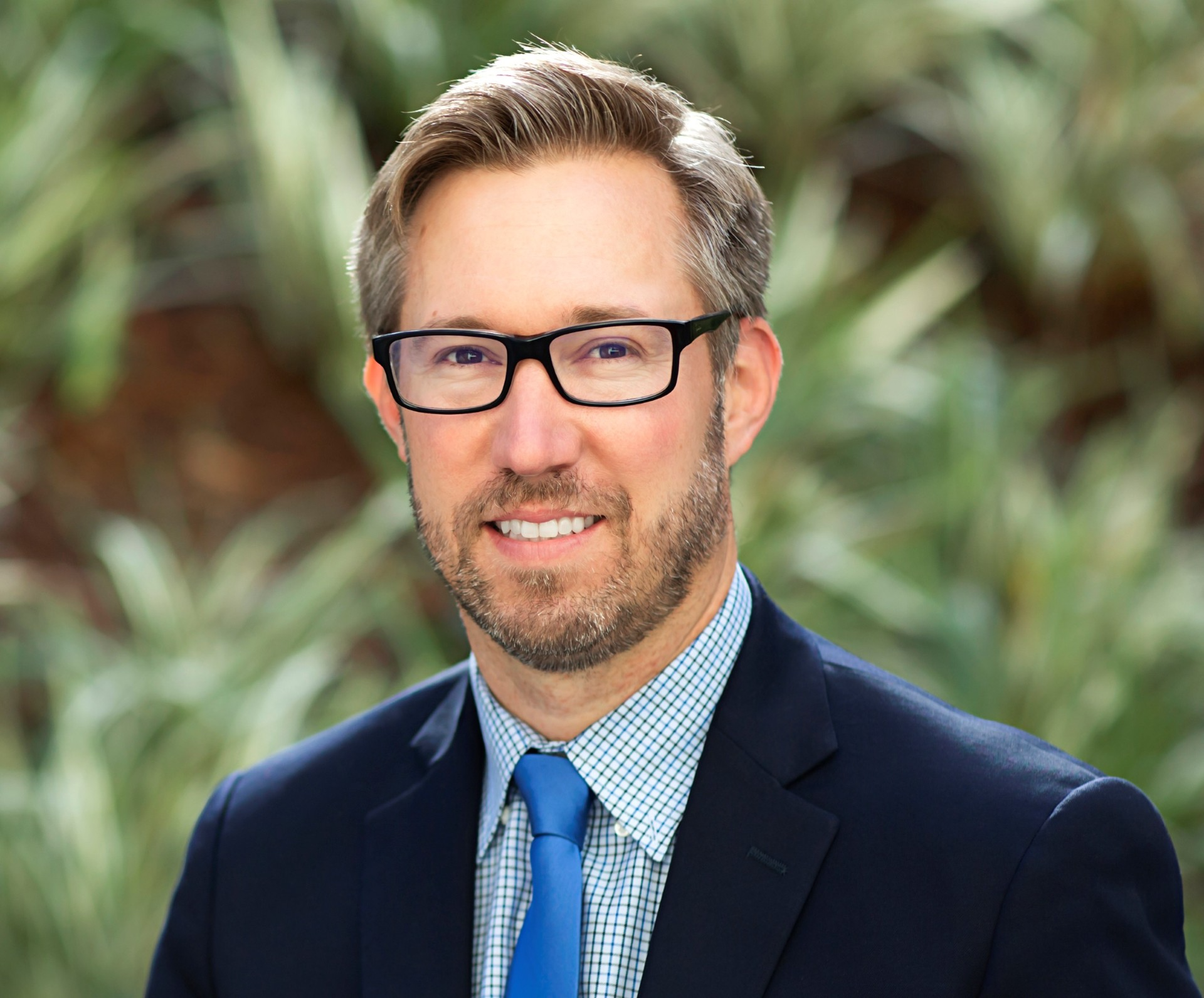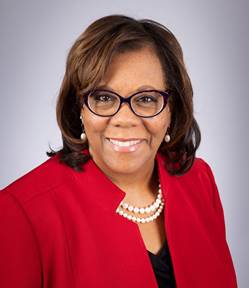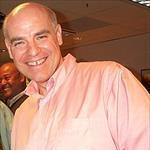Calendar of events
Scheduled Events
AG Meeting Schedule
Educational Meeting
| Date | Time | Presenter | Core | Presenatation Title | ||
|---|---|---|---|---|---|---|
| March 18 | 1 p.m.- 2 p.m. | Dr. Elizabeth Towner, PhD |
| Community-Academic Partnership to Develop a Toolkit for Meaningful Community Engagement in Writing Research Grant Applications | ||
| May 20 | 1 p.m.- 2 p.m. | IDC Pilot Awardee (1-1:30 PM) IDC Pilot Awardee (1:30-2 PM) | Investigator Development Core Pilot Awardee | Presentation 1 Presentation 2 | ||
| September 16 | 1 p.m.- 2 p.m. | IDC Pilot Awardee (1-1:30 PM) IDC Pilot Awardee (1:30-2 PM) | Investigator Development Core Pilot Awardee | Presentation 1 Presentation 2 | ||
| October 21 | 1 p.m.- 2 p.m. | IDC Pilot Awardee (1-1:30 PM) IDC Pilot Awardee (1:30-2 PM) | Investigator Development Core Pilot Awardee | Presentation 1 Presentation 2 | ||
| November 18 | 1 p.m.- 2 p.m. | IDC Pilot Awardee (1-1:30 PM) IDC Pilot Awardee (1:30-2 PM) | Investigator Development Core Pilot Awardee | Presentation 1 Presentation 2 |
Past Events
2024 Implicit Bias Workshop Series
Wednesdays (6:00-8:15 p.m.) virtually
Part 1 - 09/25/24
Part 2 - 10/02/24
Part 3 - 10/16/24
UCSF Research Coordinating Center to Reduce Disparities in Multiple Chronic Diseases (RCC-RD-MCD) Investigator Skills Development Unit (ISDU) presents:

Aric Prather, PhD
Professor of Psychiatry and Behavioral Health Sciences
Interim Director, Center for Health & Community
University of California, San Francisco
Social Determinants of Sleep: Implications for Health Equity and Opportunities for Intervention
Wednesday, May 22nd, 2024
10:00 am – 11:00 am PT
[12-1pm CT; 1-2pm ET]
Zoom Meeting
The goal of this presentation is to describe how insufficient sleep and sleep disturbance contribute to negative physical and mental health outcomes that occur at great frequency and severity among minority and socially disadvantaged populations. This presentation will also focus on potential multi-level drivers of sleep disparities, including the impact of racial discrimination, and a discussion of potential policies and intervention opportunities to reduce sleep inequities to improve health.
Aric A. Prather, PhD is a Professor of Psychiatry and Behavioral Sciences at UCSF and Interim Director for the UCSF Center for Health & Community. Dr. Prather’s research program focuses on the causes and consequences of insufficient sleep, with specific interest in how racial and socioeconomic sleep inequities contribute to health disparities.
Presented by the Investigator Skills Development Unit (ISDU) of the UCSF Research Coordinating Center to Reduce Disparities in Multiple Chronic Diseases (RCC-RD-MCD)
(MPIs: E. Charlebois, PhD, MPH; K. Rhoads, MD, MPH; S. Gansky, DrPH)
Co-Sponsored by CAPS Town Hall
ISDU Director and Session Moderator: Mandana Khalili, MD, MAS, Professor of Medicine, UCSF, Chief of Clinical Hepatology, San Francisco General Hospital
ISDU Co-Director: Edwin Charlebois, PhD, MPH, Professor of Medicine, Division of Prevention Science, UCSF
UCSF Research Coordinating Center to Reduce Disparities in Multiple Chronic Diseases (RCC-RD-MCD) Investigator Skills Development Unit (ISDU) presents:

Valerie Yerger, ND
Professor of Health Policy
University of California, San Francisco
Menthol and Flavored Tobacco Bans: The Intersectionality of Research, Community Engagement, and Collaboration
Wednesday, April 3rd, 2024, 11:00 am – Noon PT [1-2pm CT; 2-3pm ET]
Zoom Meeting: Register Here
This presentation will showcase a multifaceted approach that includes exposing tobacco industry secrets to mobilizing communities, leading to policy implementation and ongoing advocacy efforts.
Valerie B. Yerger, ND is Professor in Health Policy at the University of California, San Francisco. She is clinically trained as a naturopathic doctor and licensed midwife. For over twenty years, Dr. Yerger’s research and advocacy work have focused on framing the disproportionate burden of tobacco among marginalized communities as a social injustice and informing public health policies to effectively reach and engage these communities. Her research of previously secret tobacco documents uncovered the tobacco industry’s relationships with African American leadership groups, the accumulation of nicotine in tissues containing melanin, the disproportionate marketing of menthol cigarettes in inner-city communities, and tobacco companies’ in-house research on the use of menthol as an additive in cigarettes. Dr. Yerger has made significant contributions to understanding factors that contribute to tobacco use among disadvantaged groups. She brings a novel focus on the demand side of the tobacco epidemic that frames the social and political determinants of health as underlying barriers to tobacco prevention and smoking cessation. Dr. Yerger is a founding member of the African American Tobacco Control Leadership Council (AATCLC), which spearheaded the national movement to ban the sale of menthol cigarettes and other flavored tobacco products. Most recently, Dr. Yerger took the lead in launching a coordinated effort between the AATCLC, Emotional Brain Training, Inc., the UCSF Smoking Cessation Leadership Center, the UCSF Center for Tobacco Control Research & Education, and other trusted community partners across the country to respond to the White House Cancer Moonshot Initiative to reduce smoking. Her substantial experience in tobacco control, community engagement, policy leadership, and training are all valued skills, reflected in the number of awards she has received, including the UCSF Chancellor Award for Public Service, the State of California Tobacco Control Program’s Carol M. Russell Award for Leadership and Vision in Tobacco Control, the Public Health Law Center’s Game Changer Award, the Truth Initiative’s Sybil G. Jacobs Outstanding Use of Tobacco Industry Documents, and most recently, the Claire D. Brindis Community Engagement Award.
Presented by the Investigator Skills Development Unit (ISDU) of the
UCSF Research Coordinating Center to Reduce Disparities in Multiple Chronic Diseases (RCC-RD-MCD)
(MPIs: E. Charlebois, PhD, MPH; K. Rhoads, MD, MPH; S. Gansky, DrPH)
Co-Sponsored by CAPS Town Hall
ISDU Director and Session Moderator: Mandana Khalili, MD, MAS, Professor of Medicine, UCSF, Chief of Clinical Hepatology, San Francisco General Hospital
ISDU Co-Director: Edwin Charlebois, PhD, MPH, Professor of Medicine, Division of Prevention Science, UCSF
Health Equity Action Network and ACHIEVE GREATER present free and virtual Roundtable of National & Community Healthcare Leaders
Wednesday, 2/28/24, 5pm ET
Register Here

SAVE THE DATE: NIMHD Multiple Chronic Conditions Virtual Workshop on March 18-19, 2024
Research Strategies to Optimize Healthcare for People with Multiple Chronic Conditions (MCC) from Populations Experiencing Health Disparities
This workshop is envisioned as a platform to stimulate discussions from researchers, clinicians, subject matter experts, and others in the extramural community to 1) examine strategies for conducting multilevel research on MCC populations experiencing health disparities; 2) identify feasible methodologies and barriers to conducting the range of research on MCC; 3) discuss critical collaborations needed to successfully conduct such research; and 4) discuss analytical challenges and potential solutions.
The registration link is now live, and you can register for the workshop via:https://nih.zoomgov.com/meeting/register/vJItdeuqpzgtHa7UH4ixcxzC5BVmFN7ig8c
Submit your questions to MCCWorkshop@mail.nih.gov, up to 24 hours before the event.
All of Us Research Program: The Virtual HEAN Data Sandbox Event

Thursday, February 15, 2024 10 am – 11:30 PT
Learn about the All of Us Research Program through an interactive workshop, which will include a presentation of the All of Us Research Program, followed by a tailored treasure hunt using the All of Us public Data Browser.
This event is intended for early stage investigators and sessions are led by IGNITE (Interdisciplinary Guided Network for Investigation, Translation, and Equity).
For this virtual event, please be sure to come prepared to unmute your microphone and have your camera on in order to participate in the interactive portion of the event.
What is the All of Us Research Program?
The National Institutes of Health’s All of Us Research Program is working to enroll at least one million people who reflect the diversity of the United States, including people and communities who have been left out of medical research in the past. The dataset equips researchers to make discoveries that will enable more precise approaches to care.
About IGNITE
The Interdisciplinary Guided Network for Investigation, Translation, and Equity (IGNITE) collaborates with community, clinical, and academic organizations to find ways to use All of Us data to contribute to the science of community engagement and to improve community health.
To learn more, visit ResearchAllofUs.org/IGNITE-about or contact Nakisa Pourkey.
Flyer here.
UCSF Research Coordinating Center to Reduce Disparities in Multiple Chronic Diseases (RCC-RD-MCD) Investigator Skills Development Unit (ISDU) presents:

Joanne Spetz, PhD,
Director, Philip R. Lee Institute for Health Policy Studies
Brenda and Jeffrey L. Kang Presidential Chair in Health Care Financing
Professor, Department of Family & Community Medicine
University of California, San Francisco (UCSF)
Health Policy as it relates to Health Systems Access, Quality and Disparities
Wednesday, Jan. 31st, 2024
10:00 am – 11:00 am PT
[12-1pm CT; 1-2pm ET]
Zoom Meeting
Learning Objectives:
- Describe examples of health policies that influence health system access and disparities in access
- Describe examples of health policies that influence disparities in quality of care
- Identify challenges to incorporating a focus on equity in health policy
Dr. Joanne Spetz is Director and Brenda and Jeffrey L. Kang Presidential Chair in Health Care Financing at the Philip R. Lee Institute for Health Policy Studies (IHPS), University of California San Francisco. Dr. Spetz’s research focuses on the economics of the health care workforce, organization of health care services, and quality of health care. She directs the federally funded UCSF Health Workforce Research Center on Long-Term Care, which generates evidence to ensure an adequate workforce to provide patient-centered care to individuals with long-term care needs across the lifespan. She is an internationally known expert on the nursing workforce, leading studies of nurse supply, demand, education, earnings, and contributions to the quality of care across healthcare settings. Dr. Spetz is an Honorary Fellow of the American Academy of Nursing. Dr. Spetz received her Ph.D. in economics from Stanford University after studying economics at the Massachusetts Institute of Technology.
Presented by the Investigator Skills Development Unit (ISDU) of the UCSF Research Coordinating Center to Reduce Disparities in Multiple Chronic Diseases (RCC-RD-MCD)
(MPIs: E. Charlebois, PhD, MPH; K. Rhoads, MD, MPH; S. Gansky, DrPH)
Co-Sponsored by CAPS Town Hall and the CAPS Implementation Science and Health Systems Core
ISDU Director and Session Moderator: Mandana Khalili, MD, MAS, Professor of Medicine, UCSF, Chief of Clinical Hepatology, San Francisco General Hospital
ISDU Co-Director: Edwin Charlebois, PhD, MPH Professor of Medicine, Division of Prevention Science, UCSF
Save the date: “First Annual ACHIEVE GREATER Visiting Professor Lecture”11/29/23 12:00-1:00 p.m. EST
Location: Wayne State IBio Building 6135 Woodward Ave, Detroit MI
Join Zoom Meeting
https://wayne-edu.zoom.us/j/94774518261?pwd=cDl4TFdtYS9SdHN4czIzQXRydXRRZz09&from=addon
Meeting ID: 947 7451 8261
Passcode: 204421

Jonathan Newman, MD, MPH.
NYU Grossman School of Medicine
The Eugene Braunwald, MD, Assistant Professor of Cardiology, Department of Medicine Expertise: diabetes treatments for cardiovascular risk reduction; peripheral vascular disease in diabetes; diabetic dyslipidemia
3-Part Implicit Bias Workshop Series (Free Zoom Event)
ACHIEVE GREATER's Engagement Core (CEC) is hosting the 5th Session of our 3-Part Implicit Bias Workshop Series. Consortium members are invited to this FREE session. You will be registering for all 3 workshops for the following dates (all occur between 6-8:15 pm ET on Tuesdays)
- 10/17/23
- 10/24/23
- 11/07/23
The 3 workshops are 2 hours, 15 minutes each and are virtual (via Zoom), interactive, engaging, and involve pools, individual activities, and small group activities. All registered attendees will be provided an interactive workbook for each workshop that contains the links to valuable video and resources. Attendees will also receive a digital certificate of completion, that fulfills state requirements for Implicit bias training for licensees. For more information, please find the attached flyer and objectives for each workshop.
The event will be hosted by Rhonda Dailey, MD and presented by Dr. Vicki T. Sapp of Sapp Consulting Group, LLC.
Register here →
Flyer here →
Introduction to Statistical Mediation and Moderation Concepts and Methods
Mark your calendar for the next Investigator Skills Development Unit (ISDU) webinar featuring Tor Neilands, PhD on Thursday, October 19, 2023 at 10:30 am PT.
Register for the webinar here →
Virtual Workshop: Learning Community for Writing, Dissemination & Reviewing:
November 11th, 2023 | 5 p.m. to 8p.m. EST
PCHP (Progress in Community Health Partnerships), in partnership with Morehouse School of Medicine Prevention Research Center and CCPH (Community-Campus Partnerships for Health), are piloting a Writing, Dissemination and Reviewer Learning Community alongside the 2023 American Public Health Association’s (APHA) Annual Meeting on Saturday, November 11, 2023. The workshop builds upon an earlier Writing and Dissemination Institute held in 2017 at APHA. It will support community-patient-academic partners and teams to develop and enhance skills to contribute to academic writing in peer reviewed journals; as well as increase the pipeline of community-patient external reviewers for PCHP and other peer reviewed journals.
The November 11 workshop agenda is designed for participants to learn and practice skills through a dynamic skills-based curriculum, interactive presentations, small group sessions, coaching, and best practices and resources. Small group facilitators will support skills participants want to develop, and practice related to writing for academic publication.
Learn more:
Website→
Registration→
Flyer→
UCSF Research Coordinating Center to Reduce Disparities in Multiple Chronic Diseases (RCC-RD-MCD) Investigator Skills Development Unit (ISDU) presents:
Introduction to Mediation and Moderation Methods and Concepts

Tor Neilands, PhD
Professor of Medicine, Division of Prevention Science
Director, Methods Core of the Center for AIDS Prevention Studies
Director, Analysis Core of the Center for Aging in Diverse Communities
University of California, San Francisco
Thursday, Oct.19th, 2023
10:30 am – Noon PT
[12:30-2pm CT; 1:30-3pm ET]
Zoom Meeting
Learning Objectives:
• Introduce the concept of statistical mediation and methods for assessing mediation.
• Introduce the concept of statistical moderation, types of moderation, and limitations of moderation analyses.
• Point to resources to learn more about mediation and moderation analyses, including how to do them and interpret their results.
Dr. Tor Neilands is a Professor at the UCSF Division of Prevention Science in the Department of Medicine at UCSF. Originally trained as a social and quantitative psychologist, he spent eight years as a statistical consultant at the University of Texas academic computing center before coming to UCSF in 2001. Since arriving at UCSF, he has participated as statistical co-investigator or consultant on over 80 NIH, CDC, and state projects in the areas of HIV prevention, reproductive health, aging research, and tobacco prevention. His methodological areas of interest are multivariate statistical models with a special interest in latent variable models for survey scale development and validation, and mixed effects (i.e., multilevel; HLM) models for clustered and longitudinal data, including dyadic data. Dr. Neilands’ substantive interests include training the next generation of prevention researchers working in U.S. minoritized/marginalized communities. He is PI of two NIH-sponsored R25 research education grants to foster grant-writing and related research capacity-building for early-career faculty working in U.S. minority communities to prevent the spread of HIV/AIDS and STIs and to improve the lives of those living with HIV/AIDS. Dr. Neilands also actively collaborates as a senior statistician and quantitative methods co-investigator on multiple prevention research projects. He is a co-author of Primer of Applied Regression & Analysis of Variance with Drs. Stanton Glantz and Bryan Slinker (McGraw-Hill, 2016).
Presented by the Investigator Skills Development Unit (ISDU) of the UCSF Research Coordinating Center to Reduce Disparities in Multiple Chronic Diseases (RCC-RD-MCD)
(MPIs: E. Charlebois, PhD, MPH; K. Rhoads, MD, MPH; S. Gansky, DrPH)
Co-Sponsored by CAPS Town Hall
ISDU Director and Session Moderator: Mandana Khalili, MD, MAS, Professor of Medicine, UCSF, Chief of Clinical Hepatology, San Francisco General Hospital
ISDU Co-Director: Edwin Charlebois, PhD, MPH Professor of Medicine, Division of Prevention Science, UCSF
This session will be recorded and posted for later viewing.
You can view our past sessions on the HEAN YouTube Channel.
HEAN Annual Community and Scientific Partners Meeting
September 13 - 14, 2023, Bethesda MD
HEAN 2023 Annual Meeting Goals
The goals of our HEAN 2023 Annual Meeting are to promote collaboration and communication among MCD Center investigators & research teams, our community partners, and other research organizations and to engage in research skills and career development of early-stage investigators.
Organized over two days in Bethesda, Maryland (adjacent to NIH) sessions are designed to:
- Foster communication across Centers and the network as a whole
- Provide status updates on individual P50 Center’s main studies
- Share successes & challenges implementing the goals of the Network
- Strengthen community and scientific partnerships
- Highlight innovations addressing MCD disparities
- Advance meaningful community engagement across the research continuum
- Leverage opportunities across NIH Centers to promote our HEAN agenda, priorities, and best practices
- Advance research skills and the careers of the next generation of MCD disparities researchers and network these early-stage investigators to each other and across the HEAN MCD network
Who should register to attend this meeting:
- P50 Center MPIs (at least 1 required to represent Center)
- Core PIs
- Project PIs
- Community Partners
- P50 Center Co-Investigators
- Project & Program Managers
- Data Managers
- Early Stage & Pilot Investigators and Trainees